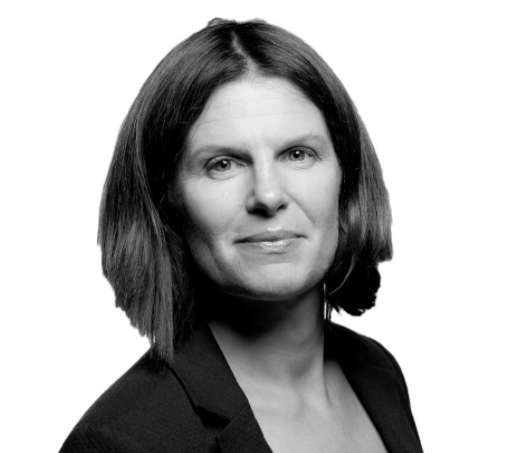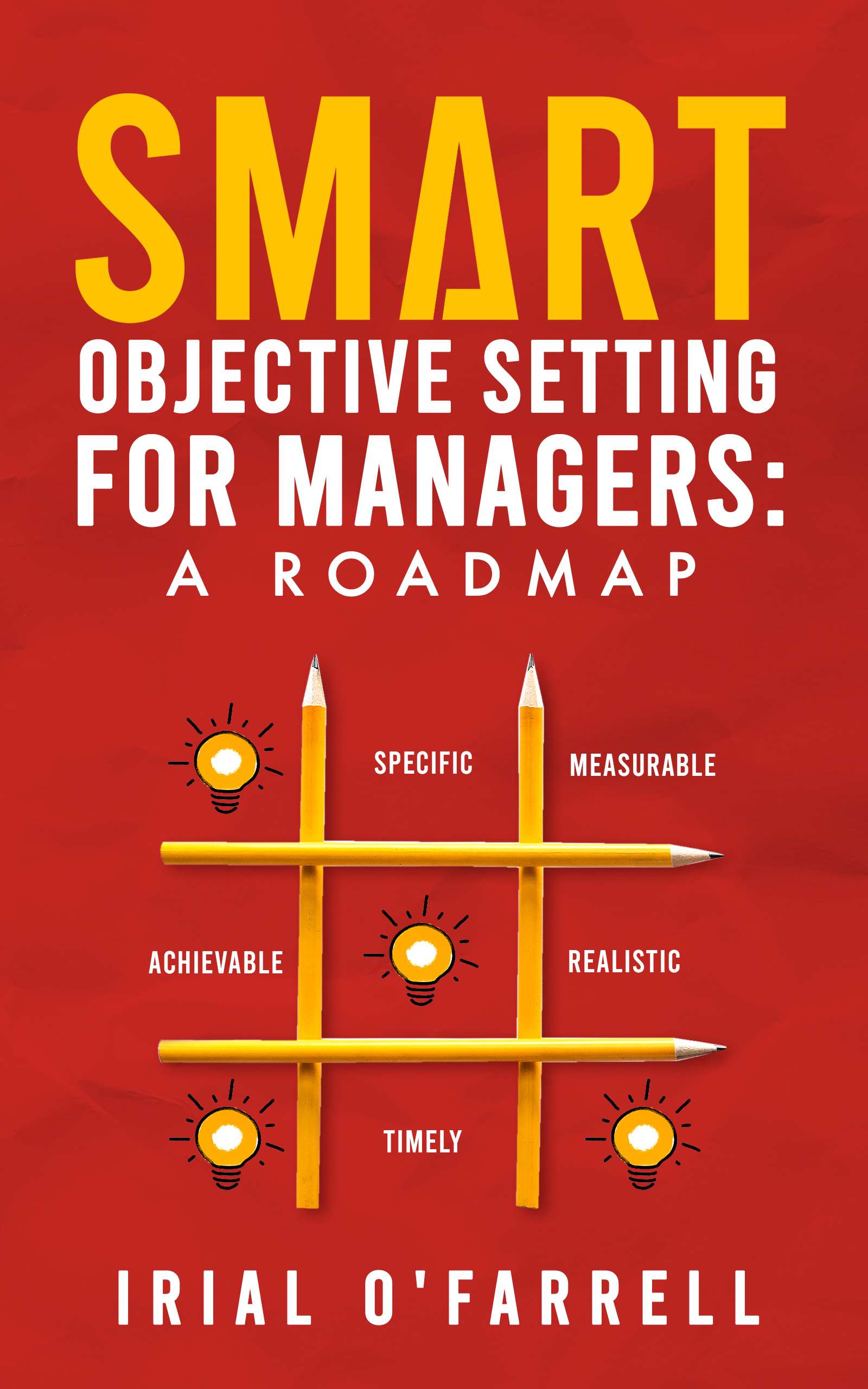
This week on Talk Learn Connect, Writer Yvonne Reddin asks Coach, Trainer, Consultant and Author - Irial O'Farrell to share some TLC (Talk Learn Connect)
Can you share with the TLC audience, what you offer to your customers and what your business- Evolution Consulting's approach is?
Evolution Consulting is a bespoke coaching, training and consulting company, with the key purpose of maximising clients’ effective business performance. As principal consultant, I take a look at what is going on with the company through five lenses -
Strategy: Is there a clear vision, purpose and fit-for-purpose strategy that is guiding the business? If so, has it been clearly cascaded down through each of the functions? In my experience, strategies tend to be framed in terms of a 'Strategic To-Do' list, rather than actually understanding what game the company is playing.
Structure: Is the infrastructure of the company working for it or has it been outgrown? The infrastructure of many organisations tend to evolve over time, in response to needs rather than due to deliberate intention. Sometimes, lower business performance is an unintended consequence. Infrastructure deals with both organisational design and organisational processes such as performance management and recruitment etc.

Culture: Is the culture conducive to what the business is seeking to achieve? Asking people to suddenly become “innovative” when they’ve spent the last ten years adhering to regulations is just not going to happen, no matter how often or politely they’re asked.
Capability: Do the right people have the right competencies to enable the busines to succeed?
Change: Is there really a desire to put in the hard work necessary to achieve the desired outcome? Change initiatives being led by leaders who say they want change in a 'now go off over there and sort that out' kind-of way, will firmly fall into the seventy four per cent of transformation projects that fail.
What Evolution Consulting offers clients is -
- A diagnosis as to what issues are negatively impacting organisational, team and individual performances
- A thoughtful, comprehensive design and plan as to how they can change the dynamics
- Services such as Strategy and Organisation Design workshops, Leadership and Management Development programmes, Executive Coaching, to support and develop planning, design and implementation capability
- Change management guidance and support during the scary rollercoaster of implementation.
Where did your instinctive passion for organisational dynamics and boosting businesses performance come from?
It’s going to sound extremely geeky when I say this but the first inkling of my passion came in my first job, in Sydney Australia. I was fascinated with why everyone loved one manager and disliked ('hate' is possibly a bit too strong) another. While fascinated by it, I didn’t pay it too much thought, as I forged a career in Fund Administration. I quickly moved into management and developed a high performing team. It wasn’t called a high performing team in those days, I’m not sure the term had been coined by then.
"However, you know a team is high performing when, due to my appointment to an internal organisation design project, other managers were outbidding each other to get their hands on the team members"
As it came pretty naturally to me, I assumed management came naturally to others too. As I’ve learned over the last twenty years, for many, they were promoted into management, based on their strong technical ability, not their ability to manage. And no, it doesn’t come naturally to them, they sometimes need a bit of a helping hand.
For me, it was always about matching the ability of the individual to the performance needs of the business. Different work is designed to happen at different levels and functions within an organisation. It is designed, both in terms of the role/level/function and in terms of the price the product or service is set at. If a task is designed and priced to be done at one level and is done (or done again) at a more senior level, that task has become very costly.
Not just in terms of the cost of the time for the more senior person to do the task but also in terms of the opportunity loss of the task (and it’s impact) that the more senior person should have been spending their time doing. Don’t ask me where that bit came from. I studied science in college, not finance!
You became an accredited Change Master, with the Change Management Institute, earlier this year. Can you explain this further?
Yes, I’d be delighted to. This is the number one accreditation that I am truly proud of because it is like the apex of a mountain of boulders, made up of many, many different elements. Firstly, let me explain what an Accredited Master of Change means. The Change Management Institute (CMI) have three levels – Foundation, Specialist and Master. Specialist indicates a demonstrated ability to effect change within a project while Master indicates a demonstrated ability to effect change across the organisation.
Would you believe, I started the process in 2018. Becoming a specialist involves demonstrating you have the competencies required to be a change manager. In addition to the requirements, is five days of continuous development in related topics, submitting a 2,000 word essay on a specific change project and getting two referees to complete evaluation forms. All of that is then topped off with an interview. My interview was scheduled for Friday, 13th March, 2020. Yes, that is the day after Leo made his announcement that the schools were closed, effective immediately. The three children were banished from the room for the duration.
Having successfully earned the Specialist title, I got my date for the Master evaluation. It consisted of an intense four hours, where I had to evaluate a change case study and then prepare two presentations - a twenty minute presentation to the executive team and a five minute presentation to a team impacted by the change; followed by another interview. The husband did a full evacuation for that one!
I was on an absolute high, when I got the news that I had been accredited. I didn’t think I could beat that feeling but when I got the formal email, saying that my name had been entered onto CMI’s list of Accredited Masters, I clicked through to see that the only name entered under Ireland was mine. I literally was walking on air.
You might be wondering why this accreditation meant so much to me. Effecting change pulls from so many different disciplines – strategy and vision, strategic thinking, planning, leadership, engaging communication, understanding and reading people, their actions and their words, coaching, training, analysis, influencing, emotional intelligence, trust, deep listening, curiosity…the list is endless.
To me, this accreditation was the apex of being able to pull all those strands together and be recognised for it. Not everyone can be an effective change manager. It is as much, if not more so, about the people as it is about the process.

In our current climate, how has your business managed or have you had to modify your own strategies, comparable to what you provide to your clients?
Well, thanks to the very generous support of the Irish government, I’ve been able to take advantage of the trading-on-line voucher and pivot my business. By incorporating an online teaching platform into my website, I have been able to move training courses online and extend my reach beyond just Ireland. I’m very excited to design and promote management and leadership development programmes that will make a difference.
One course that I’m particularly looking forward to getting out there is on Developing Others’ Problem-Solving Skills. Managers tend to excel at solving problems but aren’t so good at developing other people’s problem-solving skills. Over time, this causes a huge bottleneck, as everyone is waiting for the manager to sort issues out. This course actually provides managers with the mindset, skills and process needed to free up their own time while also motivating their employees.
The other thing that the trading voucher allowed me to do was to install an e-commerce platform. This opened up the opportunity to sell products and not just services.
"Having already written a book – Values: Not Just for the Office Wall Plaque-How Personal and Company Values Intersect - the e-commerce platform and covid prompted me to get back to writing and this book squarely focused on performance"
It’s called SMART Objective Setting for Managers and it provides a multi-dimensional understanding of SMART, performance objectives, the human and what can, and does, typically go wrong with objective setting. Since I’m always a practical 'right, what do we need to do, to sort it out' kinda gal, it also gives managers a comprehensive understanding of what to do. While also making sure that objective setting and performance development works for the individual, the manager, the team and the business.
So long term, I feel COVID gave me an opportunity to pivot my business into an on-going sustainable business and freeing myself up more to work directly on the really juicy projects.

Can you share any words of wisdom that helped you in your successful career?
The best bit of advice I ever got was as part of feedback on a job interview. In the months prior to me setting up Evolution Consulting, the company I was working for indicated to me that it wasn’t going to create a senior manager role for me in Learning and Development, the area I was working in. So, I interviewed for a senior manager role in an operational area I had an interest in. Unsuccessful, I arranged a feedback session.
The Vice President started off with the usual surfacy-type feedback and I just kept thinking “that’s not it” so I kept pushing for what was the real reason I didn’t get the promotion. This went on for four or five rounds until he had clearly run out of the easier stuff and knew he needed to give me something meaty. And then it came - two key pieces of insight that have never left me:
-
I didn’t network enough
-
I didn’t say “I want this job”
When I heard it, I knew these really were the reasons I didn’t get the job. Now when I’m in potential talks with a client, I make sure that every single time, I work in an actual statement that I’d love to work with them. As for networking, this was the most timely piece of advice I ever got. By this stage, I was about to set up Evolution Consulting, facing into the reality of needing to network to generate business.
As I was in the process of completing my Executive Coaching qualification, I took the topic straight to my own coach and got to the bottom of what held me back from networking. Let me tell you, if you saw me at a networking event today, you would never, ever think I used to have an issue with it!